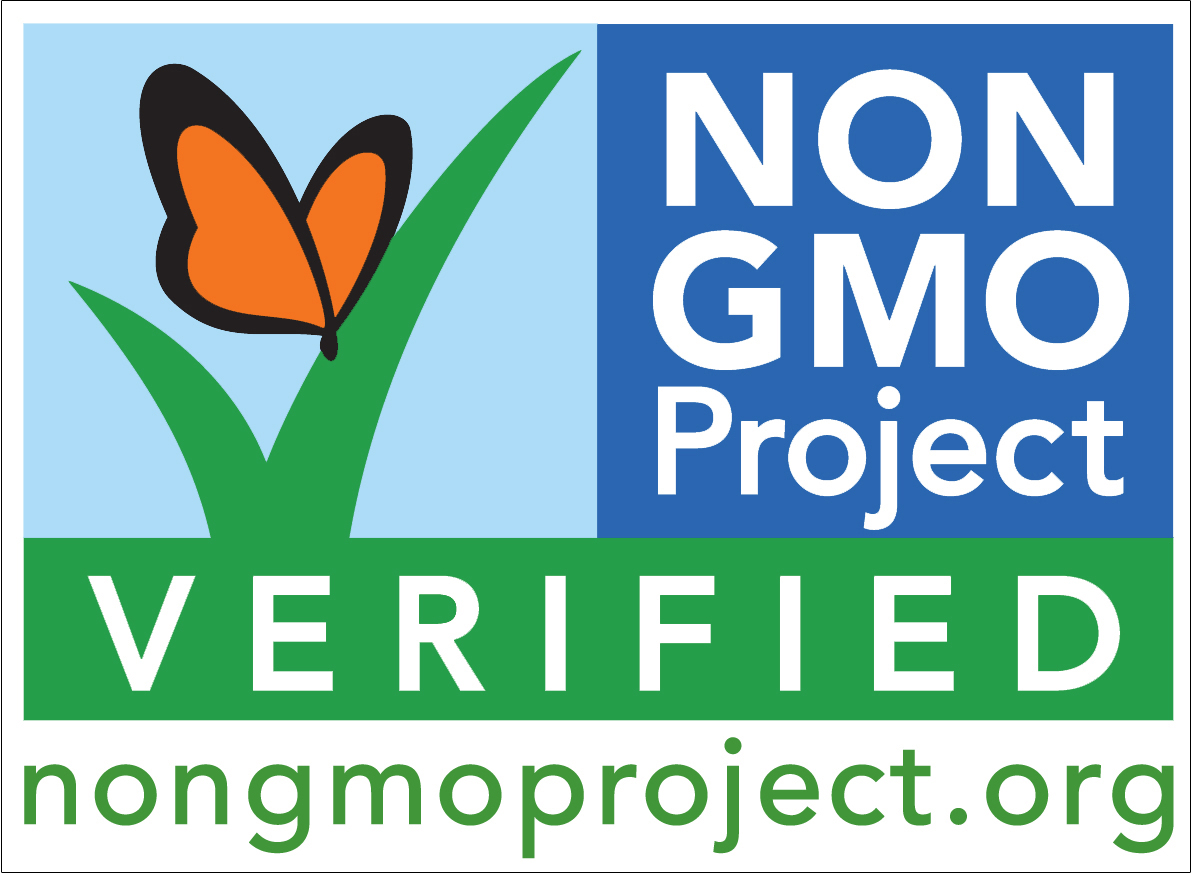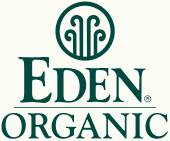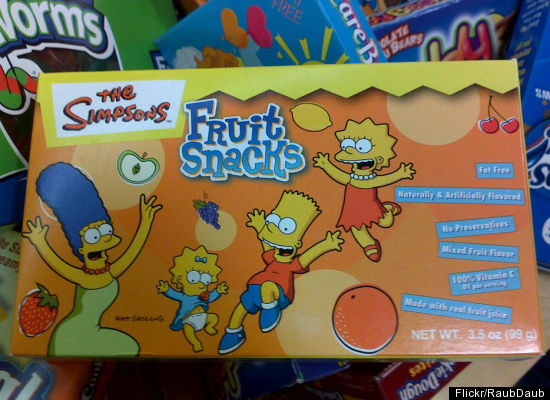Organic
We often look to certifications to tell us how the food was raised/grown. The most popular one is of course USDA Certified Organic. If only that small symbol could truly tell us how the food came to be, but it can't. I'm about to break your hippie heart, and I'm sorry.
When we imagine produce being grown organically, we automatically think of a small, family farm just outside of town that uses the most sustainable farming practices we can think of, farmers going out to check on their germinating seeds, tenderly pulling carrots from the ground, tilling the earth, rotating their crops, keeping the soil happy and full of nutrients (and life), and basically pouring love (not pesticides) into their plants. And similarly, when we think of organic animal products like meats and eggs, we think of a compassionate ol' farmer that has a personal relationship with their livestock and chickens, and the animals roam on green pastures eating whatever their heart desires and truly living the good life.
The USDA Certified Organic seal doesn't guarantee any of this, unfortunately. When we see "organic", we automatically think "small, sustainable, non-industrialized farming". There are exceptions, but most Certified Organic foods we pick up at the grocery store aren't produced that way. There is a huge industrialized organic food industry that's taking off because the consumer is demanding it. I like that organic has become more prevalent, because it shows the power of our voice. What I don't like is the fact that so many consumers are supporting an industry they might not if they really knew what Certified Organic meant.
Usually, the picture we have in our heads of how organic produce is grown and how organic animals are raised is flawed, especially the latter. When you buy an "all-natural, organic turkey" from the store, you're almost certainly getting a bird whose life has been just as horrible as a conventionally raised bird, except their feed happens to be certified organic. They may have had access to pasture, but that doesn't mean anything either...usually, this "access" is a small door they can't fit through, or the animal has never been taught how to go outside.
Organic meat is better than conventional, industrialized meat. No contest. But I want people to know that it may not always mean what you think it means, and that there is a better alternative. As for produce, many farmers can't understand how you can possibly be organic and be industrial. It's kind of oxymoronic. When something gets scaled up, you have to start making compromises. I'd recommend you rethink buying those giant tubs of Earthbound Farms organic baby spinach if sustainable agriculture really means a lot to you.
There are also many levels of USDA organicness. There's 100% organic, organic, made with organic ingredients, etc. (read more about that here.)
There are also TONS of other organic certifications that have nothing to do with the government! How on earth are we supposed to keep track of what each label means? Good god.
It all feels more like this.
And then there are brands that prey on our desire to be responsible and healthy citizens of the world, which really pisses me off. There is nothing certified organic in this Organix shampoo brand. But many people will buy it thinking there is.
Certified Organic = no genetically modified organisms (GMOs)

One really good thing about USDA Certified Organic is that it means the product is not genetically modified or doesn't contain any genetically modified ingredients. Can you really be sure? No, not any more that your "natural" potato chips don't actually have an artificial preservative. But, it's at least a good start. However, looking for the Non-GMO Project Verified seal is a better bet.
Read more about the non-GMO project. I'm not going to get into a GMO debate here, but if you're someone who likes to avoid them, that's your choice, and you should know how to better avoid them.
Beyond organic
There's a company called Eden Foods, and they're not Certified Organic. In fact, they've chosen not to go through the tedious and expensive process of becoming certified, because they feel their food products are beyond organic. Yes, you can do the bare minimum and still be a Certified Organic farm, and more and more companies and farms are skipping the costly certification process and instead relying on the confidence they have in their sustainable farming practices and transparency.
If you go to the farmers market, everything there is beyond organic. While some farms have taken the trouble to become certified, they don't do the minimum...they use it as a symbol for what we usually think it means: this produce has been grown and harvested exactly the way you think it has, in the most sustainable manner possible.
Natural
Natural hardly means anything, and it's not enforced or certified. As long as the product doesn't have an artificial ingredient, it's natural. High-fructose corn syrup is natural. So is MSG. So is stuffing hundreds of chickens into a confined space and never letting them see the light of day.
Natural is better than not-natural. But it's not that much better. When we buy a "Natural" pound of chicken breast, I believe everyone imagines a pastured chicken. Not even close. For a chicken, it means nothing. All fresh meat is natural.
What about hormone- and antibiotic-free? Livestock and poultry are given antibiotics for two reasons: to ward off diseases they are highly susceptible to because of their horrible diets, and to promote fast growth, as are hormones. So yes, getting a chicken that's antibiotic- and hormone-free is better than not. But this chicken probably lived in conditions you don't even want to know about, and it ate corn feed.
And did you know that there is actually a certification called CNG? Apparently, their standards are considered to be even stricter than Certified Organic. Aaaghhhhh the labelssss!!!
Vegetarian-fed
Now, here's an interesting one. You've probably seen "vegetarian-fed" on egg cartons or chicken packages. This of course makes us think that the chicken is eating wholesome ingredients. But what you may not realize is that chickens are omnivores...they LOVE insects and insect larvae! Vegetarian-fed just means they ate genetically modified corn for their short lives in a dark warehouse when they really wanted to be chilling on a pasture eating forage and picking worms out of cow patties. This one really gets me. Yes, it's true, but it's the fact that we can't help but read into it that makes it evil. On top of all this, I believe this claim is intended to make it seem like the eggs are more nutritious. What a labeling lie that is.
Sidenote: This particular label is a doozy. What the hell does "USDA Process Verified" mean?
Grass-fed
Many times, grass-fed also means pastured (see below). But not always. If it's Certified Organic and grass-fed, the animal must have access to pasture...but as I already stated above, that may not mean what we think it means. However, there are other huge benefits to grass-fed over grain-fed: the health of the animal and therefore, your health. You really don't need to worry about E. coli when eating a grass-fed animal, because the E. coli outbreaks are usually caused by animals eating corn. You put a grain-fed cow on a pasture for a couple of weeks, and it sheds the E. coli. It also means the cow doesn't have a hole in its side that the farmer must routinely shove his hand into to pull out the frothy mess of grain that the rumine is having difficulty processing due to the increase in acidity. It means the animal doesn't need antibiotics because it's healthy and has all its defenses intact. It means the animal took much longer to grow to butchering size than its conventional counterpart. It means the chicken was strong enough to walk around unlike most conventional chickens because it didn't grow too fast. It means you are getting a healthy balance of omega-3 and omega-6s. It basically means this animal actually can offer you a nutritional benefit, and it had a better life.
Pastured
(There's no logo for this, so you can just look at happy animals here instead)
Ok, finally a term you can really trust when it's a farmer looking you in the eye and saying, "yes, my animals wander around on pasture eating what they evolved to eat and fulfilling their natural desires." If you have any doubts, go pay a visit to the farm one day. TRANSPARENCY
Just plain ol' inaccuracy
So where do you suppose these green beans were actually grown?
Health claims
Packaging is riddled with (often meaningless) health claims, like:
- All natural
- Low calorie
- Rich in antioxidants
- Gluten-free
- Fat-free
- High in calcium
- Lowers cholesterol
- High in fiber
- No HFCS
- 100% daily value of vitamin C
- No trans fats
- Whole-grain
Did you know that Twizzlers is a low-calorie "food" with no fat? WELL DUH. It's also made of ingredients you wouldn't even recognize as food and loooooaddded with sugar. Not to mention the funny thing is that it's going to be those sugary snacks that put on the pounds and not the avocado in the produce section.
None of these claims make a food inherently good for you. Not even whole-grain.
Some of these claims mean what they say (like high in fiber), but what these claims are counting on is us then reading into them. "Oh, high in fiber? Must be good for me!" Michael Pollan's book "Food Rules" recommends you avoid foods with health claims on them, although I think sometimes they are helpful, like when you have a food allergy. But generally, I think he's right. A head of broccoli doesn't have to boast its healthfulness.
So what should I do?
There's a lot more I could write about regarding labeling, and I probably will later on. And you may feel pretty depressed now, sorry. If you feel compelled to make a change based on all this information, try a few different things:
- Buy less processed food and meat, period. Shop in the produce section and the meat counters, and be done.
- Go to the farmers market. In Austin, there are many. You may have forgotten what real food tastes like.
- Go visit a farmstand.
- Volunteer with a farm and get produce for your time.
- Sign up for a CSA.
- Sign up with Greenling if you have more money than time.
Why? There are no ingredients lists on whole foods. They just are. If you want total transparency about what their farming practices are, you can ask the farmer. You won't need a label.
Further reading
- Environmental Working Group's Meat Eaters Guide: Decoding Meat and Dairy Product Labels
- New York Times: Honest Food Labels
- Huffington Post: 9 Most Misleading Food Labels
- Michael Pollan: The Omnivore's Dilemma
- Michael Pollan: Behind the Organic-Industrial Complex
- JustMeans: Industrial Organic Pressed for Transparency
- Triple Pundit: Pasture-Raised vs. Industrial Organic: An Egg-cellent Stakeholder Engagement Lesson
- Natural Bias: Are You Being Mislead By the USDA's Certified Organic Label?









No comments:
Post a Comment